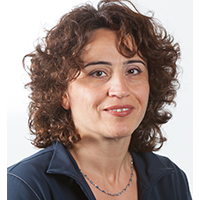Centre for Future Societies Research
Centre for Future Societies Research is a pan-university, interdisciplinary hub dedicated to exploring the complex pathways toward building a better future. It nurtures the development of innovative insights and practical solutions to global societal challenges through rigorous interdisciplinary methodologies and strategic partnerships with research institutions, industry, the public sector, and non-governmental organisations. Through its affiliation with the University Alliance, the Centre also offers a robust platform for doctoral training in its key thematic areas.
Research at the Centre is organised around four cross-cutting themes, each aligned with the pressing societal challenges we seek to address:
- Sustainable Lives, Resources and Environment
- Health and Wellbeing
- Equality and Justice
- Digitalisation, Automation and Society
A vibrant community of over 100 academic and research staff at the Centre fosters a uniquely diverse and multidisciplinary pool of knowledge and expertise. This collective strength is well-suited to addressing the complex, urgent challenges involved in shaping better future societies. With active national and international collaborations spanning more than 100 partner institutions, the Centre is ideally positioned to leverage its critical mass and shared expertise in pursuit of a more equitable, sustainable, and resilient future for all.
Professor Hulya Dagdeviren
Centre Director
Hulya is Director of the Centre for Future Societies Research at the University of Hertfordshire. She is also a Professor of Economic Development. Her research focuses on social consequences of economic structure and policy for poorer sections of society in two areas. The first is related to the dynamics of the crisis and austerity programmes post 2008, especially with respect to inequalities associated with household debt, local government debt and resilience. The second is related to the governance of environmental resources such as water, energy and land with implications for access, inequality, affordability and sustainability.

